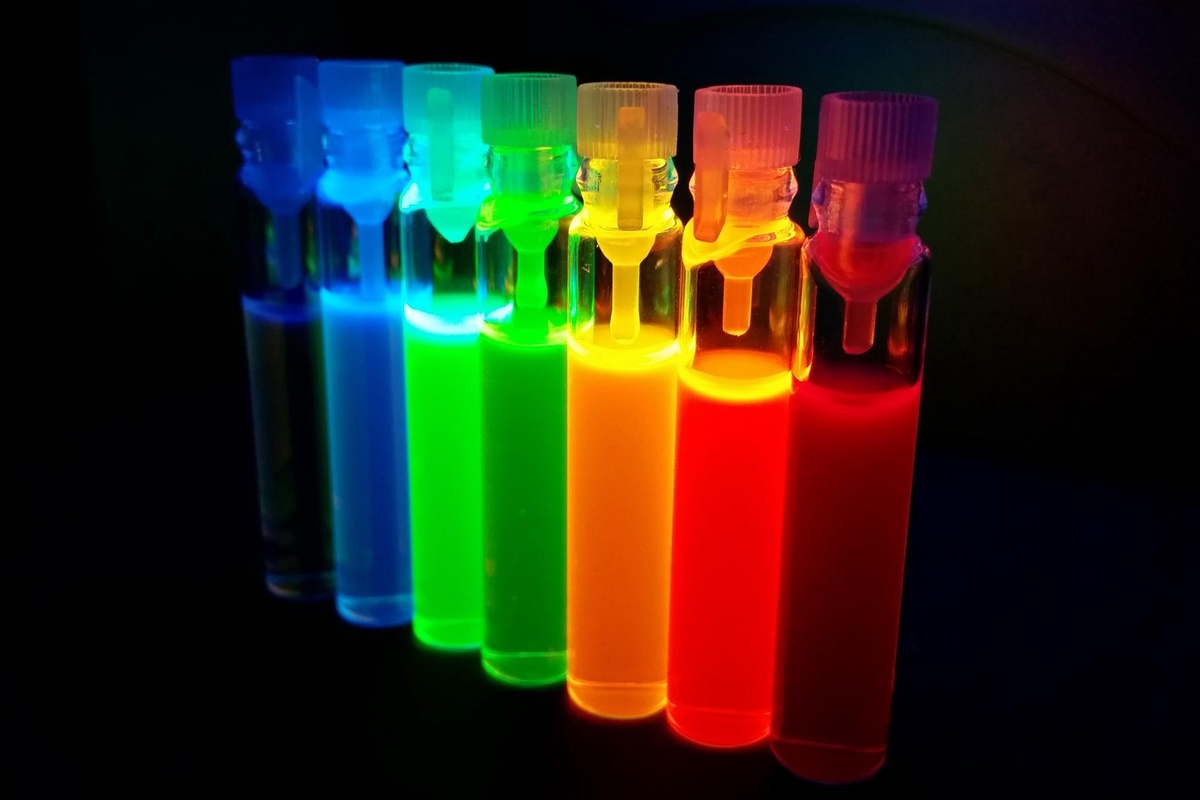In the fast-paced world of technology, our lives are becoming increasingly intertwined with displays, from the screens of our smartphones to the gigantic LED billboards that illuminate our cities. Color accuracy in displays has never been more critical, whether you're a professional graphic designer, a passionate gamer, or simply an avid consumer of digital content. One revolutionary technology that's been making waves in the display industry is Quantum Dots. In this comprehensive guide, we'll delve deep into the realm of this revolutionary technology and unveil the fascinating ways in which they enhance color accuracy in displays.
What are quantum dots?
Let's kick off our journey with a basic understanding of what this technology is. Quantum Dots, often referred to as "QDs," are nanometer-sized semiconductor particles. These tiny wonders are capable of emitting or altering light in a manner that can be precisely controlled. The special thing about them is that they can produce light when they get energy from something like a backlight in a display.
How Do They Work?
Now, let's dive into the nitty-gritty of how this technology operates their color-enhancing wizardry. When light from the display's backlight source interacts with these tiny wonders, they absorb this light energy. Subsequently, these energized QDs re-emit light of a specific color, determined by the size of the dot. This process is known as "photoluminescence," and it's the secret sauce behind QDs’ ability to enhance color accuracy.
How can QDs improve the accuracy of colors in displays?
-
Wider Color Gamut
One of the standout advantages of these semiconductor particles is their capability to expand the color gamut of displays. Traditional displays, such as those using Liquid Crystal Displays (LCDs), often struggle to reproduce the complete array of colors that are visible to humans. QDs change the game by enhancing the purity and intensity of colors. This results in images on your screen that are vibrant and more true-to-life.
-
Precise Color Tuning
Imagine having a display that can be finely tuned to match the exact colors you desire. Quantum Dots make this a reality. These remarkable nanocrystals can be precisely engineered to emit specific colors. This level of control ensures that the display can faithfully reproduce colors with unparalleled accuracy, catering to the demands of professionals in fields like photography, design, and cinematography.
-
Reduced Color Bleeding
Color bleeding, where one color spills into adjacent areas, has been a persistent issue with displays. This Technology addresses this problem by offering sharper color differentiation. This means you'll no longer see those annoying halos or blurs around objects on your screen, providing a cleaner and more visually pleasing experience.
How do QDs compare to other technologies?
-
QDs vs. OLED
You might be wondering how these nanocrystals compare to other display technologies, such as Organic Light-Emitting Diodes (OLED). While OLED displays have their own merits, these nanocrystals have the upper hand when it comes to color accuracy. The nanocrystals are more adept at maintaining consistent and accurate colors over extended periods, making them ideal for professional use and demanding applications.
-
QDs vs. Traditional LCDs
Compared to traditional LCDs, QDs displays offer a quantum leap in terms of color vibrancy and accuracy. LCDs rely on filters to control colors, which can result in color distortion. QDs, on the other hand, emit pure colors directly, reducing the risk of color inaccuracies.
What are the diverse applications?
-
Medicine
Quantum Dots aren't limited to enhancing color accuracy in displays alone. They have found their way into various fields, including medicine. In healthcare, they are used for imaging purposes. These tiny, luminescent particles can be used to tag specific cells or molecules, allowing for precise tracking and diagnosis of diseases.
-
Energy Efficiency
Energy-efficient lighting is another area where these tiny particles shine. QD-based LED lighting consumes less energy while providing superior color quality. This translates to reduced energy bills and a smaller carbon footprint, making QDs an eco-friendly choice.
What is the future of QDs?
-
In Augmented Reality (AR) and Virtual Reality (VR)
As AR and VR technologies continue to evolve, these tiny wonders are expected to play a pivotal role. Their ability to deliver vibrant and accurate colors is crucial for creating immersive virtual environments. Imagine stepping into a virtual world where colors are as vivid as those in the real world - QDs could make this a reality.
-
In 8K and Beyond
The demand for higher display resolutions is unrelenting, and QDs are poised to meet this demand head-on. With this revolutionary technology, 8K displays and beyond can achieve not only jaw-dropping resolution but also breathtaking color accuracy, ensuring that every pixel is a work of art.
Conclusion
In conclusion, Quantum Dots have ushered in a new era of color accuracy in displays. Their ability to widen color gamuts, offer precise color tuning, and reduce color bleeding has elevated the visual experience to unprecedented heights. These nanocrystals outshine traditional LCDs and even compete favorably with OLED displays when it comes to color accuracy. Furthermore, their applications extend far beyond displays, making them a versatile technology with a promising future. As we look ahead, QDs are poised to revolutionize industries ranging from healthcare to entertainment. So, whether you're a content creator striving for pixel-perfect accuracy or an everyday consumer seeking a more vibrant viewing experience, QD displays are undoubtedly the future of visual technology.


No comments yet